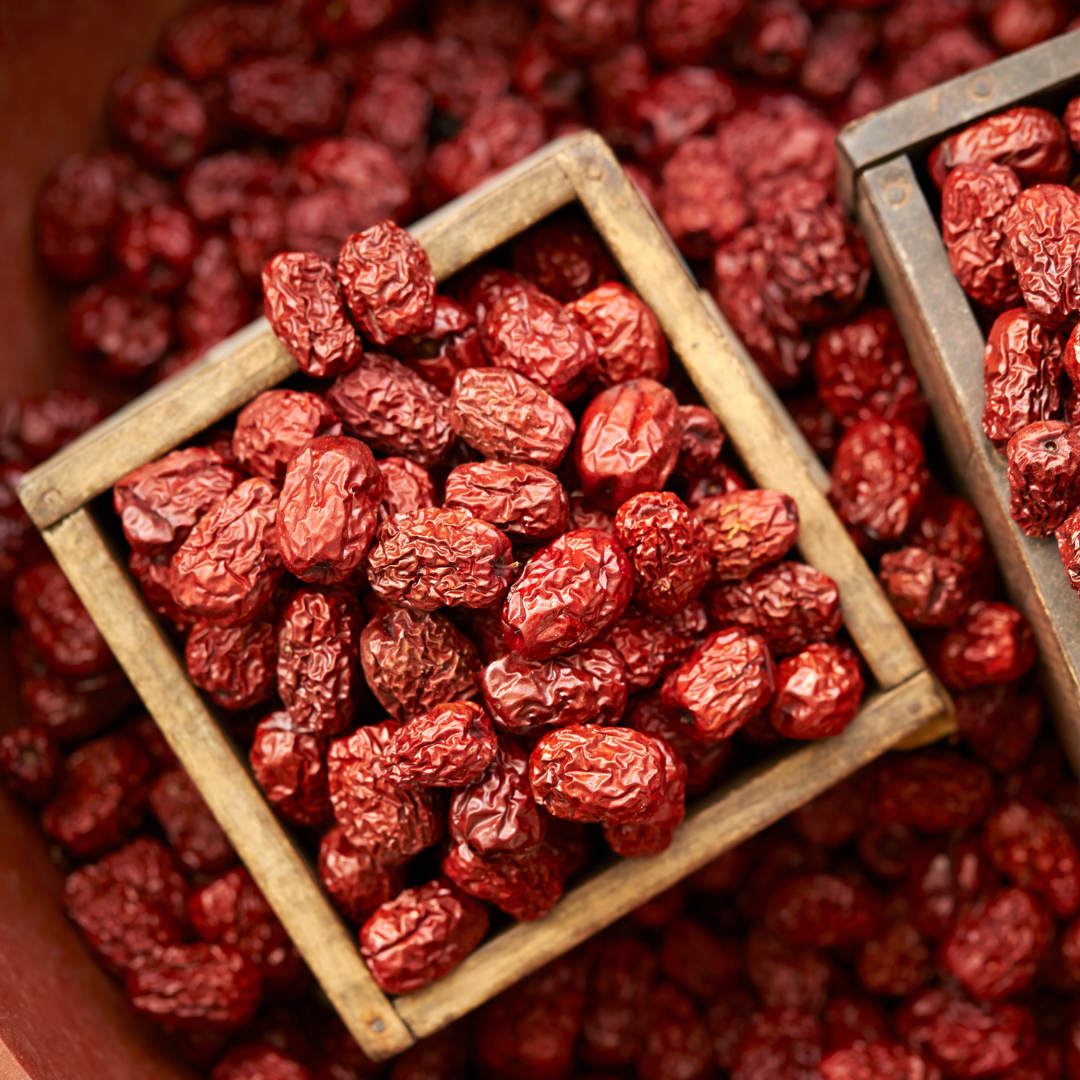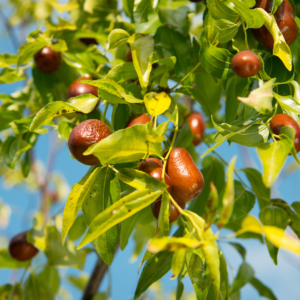Jujube: The Fruit, Not the Jelly
December 15, 2022


Jujube: The Fruit, Not the Jelly
By Jaanu
 Before anyone asks me what the title is referencing, no, I don’t know either. According to Merriam-Webster, however, jujubes (in addition to being fruit) can refer to fruit-flavored lozenges. Jujube fruits come from a small shrub called Jujube tree, originally from China. They are commonly called red dates and are about the size of an olive. Fresh jujubes taste much like an apple, but when dried are even sweeter! Jujubes were introduced to the United States in the early 1900s when the first jujube trees were brought over. But why jujube?
Before anyone asks me what the title is referencing, no, I don’t know either. According to Merriam-Webster, however, jujubes (in addition to being fruit) can refer to fruit-flavored lozenges. Jujube fruits come from a small shrub called Jujube tree, originally from China. They are commonly called red dates and are about the size of an olive. Fresh jujubes taste much like an apple, but when dried are even sweeter! Jujubes were introduced to the United States in the early 1900s when the first jujube trees were brought over. But why jujube?
- Jujube fruit is rich in phytonutrients which has anti-inflammatory and antioxidant properties
- Researchers in Iran have found that jujube juice has shown to inhibit certain cancerous cells and cause automatic cell death of human tumor cell lines, especially in leukemia
- Jujube seeds are known to help in insomnia and acts as a natural sedative
- When made into a paste or soup, it has been proved to help improve digestion and reduce exposure to harmful toxins in the gut
- It has anti-anxiety and calming effects on the body, thereby helping to improve the overall cognitive health of the brain
Jujube can be consumed raw or can replace apple in any recipe (after being peeled and having seeds removed 🙂 ). Email editorjaanu@thehappyherald.org your thoughts!









